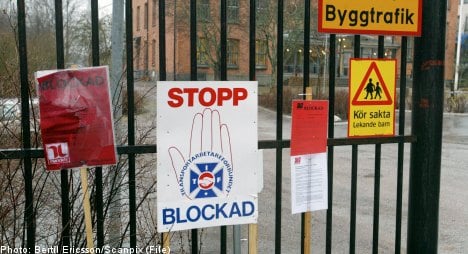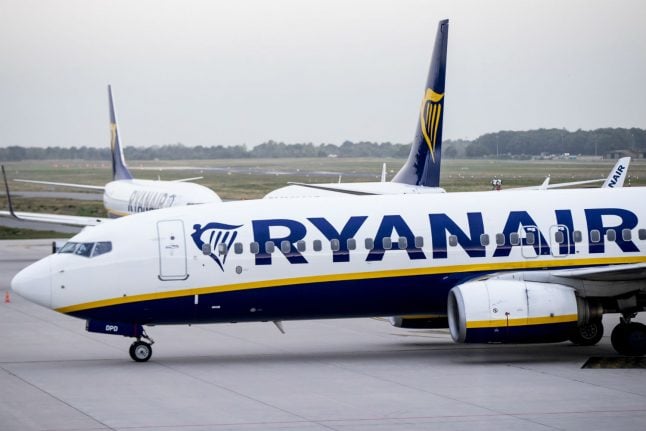Set to take effect on April 1st, 2010, the new law revises the rules governing when unions have the right to take industrial action.
The legislation comes in the wake of a December 2007 ruling by the European Court of Justice against a Swedish union that ordered a blockade of a construction site operated by Latvian firm Laval in Vaxholm in 2004.
“The new conditions for industrial action mean that the terms of collective agreements over which trade unions take industrial action must be taken from a Swedish central industry-wide agreement and may only regulate certain areas – such as pay, working hours and holidays,” said the government in a statement.
According to the government, the new law allows Sweden to maintain the Swedish labour model in accordance with the European court ruling.
Both labour and employers groups are critical of the proposal, which is the product of work by a government appointed commission headed by Claes Stråth and was completed in December of last year.
Sweden’s main trade union federation, LO, doesn’t think the legislation closes loopholes which would allow wage-dumping by unscrupulous employers.
Meanwhile, the Swedish Confederation of Enterprise (Svenskt Näringsliv) contends the proposal still violates some aspects of EU law.
Sweden’s Minister of Labour, Sven Otto Littorin, regretted that he was forced to present the legislation, saying it amounted to political meddling in wage setting.
“I am glad that we have found a solution that combines the Swedish labour market model with existing [European] Community law in a well-balanced way. It is possible to retain the Swedish model while respecting Community law,” he said in a statement.
He reiterated that there are only 2,000 people stationed in Sweden and that most of them are covered by Swedish collective wage agreements.
Employers who don’t want to be subject to industrial action must prove that they fulfill the requirements laid out in Swedish collective wage agreements, with disputes to be settled by the Labour Court.



 Please whitelist us to continue reading.
Please whitelist us to continue reading.
Member comments